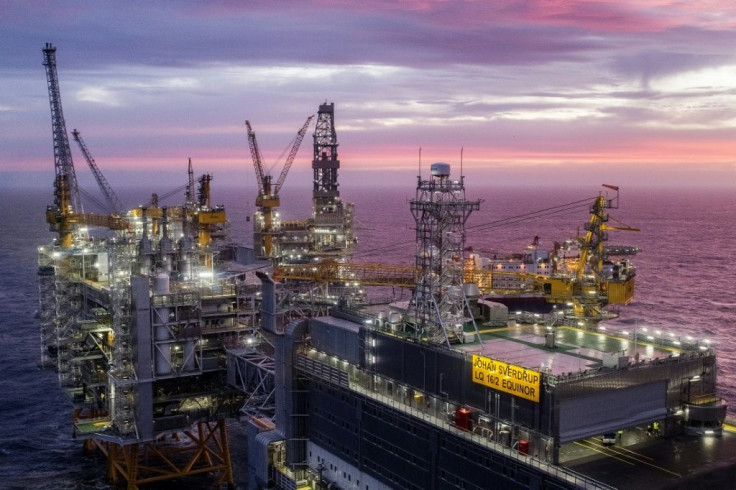Norway's Equinor Sets Green Goals But Activists Not Satisfied

Norwegian oil giant Equinor unveiled Thursday objectives to reduce its climate impact but the plans disappointed environmental activists.
The state-controlled firm said it aims for overall carbon neutrality by 2030, reducing by half emissions that cause global warming by 2050, and a 10-fold increase in renewable energy capacity by 2026.
"Today we are setting new short-, mid- and long-term ambitions to reduce our own greenhouse gas emissions and to shape our portfolio in line with the Paris Agreement," Equinor's chief executive Eldar Saetre said in a statement.
Under the 2015 Paris Agreement nations agreed to pursue efforts to limit the increase in global temperatures to under 2.0 degrees Celsius in an attempt to avoid severe consequences from global warming.
"It is a good business strategy to ensure competitiveness and drive change towards a low carbon future, based on a strong commitment to value creation for our shareholders," Saetre added.
The targets go beyond ones the firm announced just one month ago which set as a goal eliminating greenhouse gas emissions from its onshore and offshore drilling facilities by 2050.
"As part of the energy industry, we must be part of the solution to combat climate change and address decarbonisation more broadly in line with changes in society," said Saetre.
Not all the details are known, but Equinor would likely need to power its facilities from renewable electricity and turn to offsets to achieve overall carbon neutrality.
While Equinor is already involved in the massive Dogger Bank wind farm project off the coast of Britain, Thursday's announcement indicates a shift to a greater role in renewable wind power in the future.
"Equinor should be praised for the first time taking into account all of the emissions, from the production and the consumption" of oil and gas, said Else Hendel at WWF Norway.
"The measures proposed to reduce emissions are fine, but the problem is that Equinor still doesn't understand that between now and 2050 we need to completely eliminate emissions from fossil fuels," she told AFP.
Meanwhile, Silje Lundberg of the Norwegian branch of the Friends of the Earth environmental group, said: "It's good that Equinor understands as well that it must contribute by reducing its emissions but the problem is that Equinor continues to search for more oil and gas."
Equinor plans a 7.0 percent increase in oil and gas output this year and will spend around $1.4 billion on exploring for new oil and gas.
The firm, which announced annual results as well on Thursday, fell victim like most other energy groups to a drop in global oil and gas prices.
Net profit plunged to $1.8 billion last year from $7.5 billion in 2018, with the drop explained also by a dip in production and write downs in the value of assets.
Equinor's shares were down 2.3 percent in midday trading while the Oslo stock exchange's all-share index edged up 0.1 percent.
© Copyright AFP {{Year}}. All rights reserved.




















